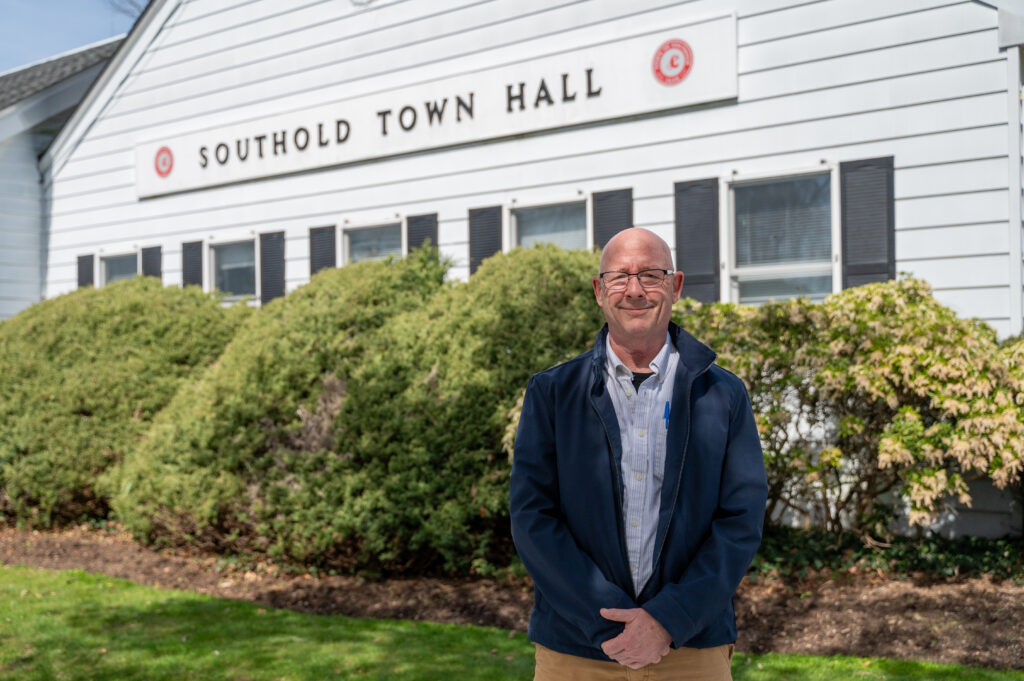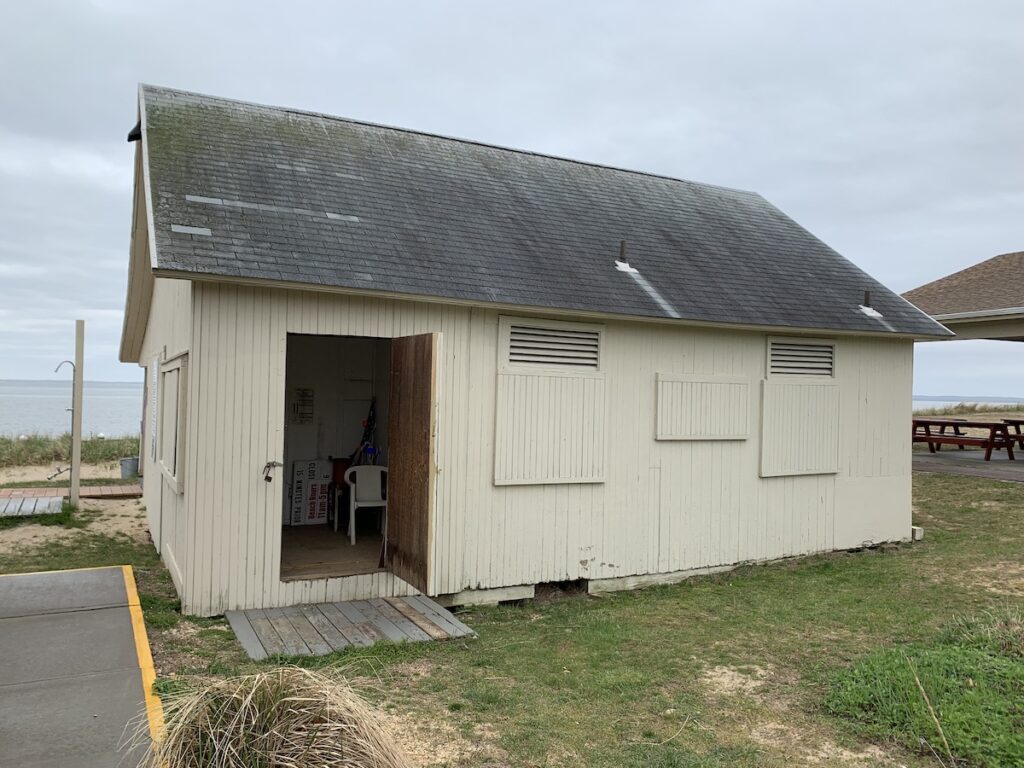Amy Folk moves town history in a new direction

For 63 years, the historic marker outside Southold Free Library has identified the site as the 17th-century home of John Underhill, “a renowned military leader and Indian fighter.”
The sign, erected in 1960 by a local historical group, is perhaps correct that he once lived on that site, but the rest of the words don’t tell a complete story, and Southold Town historian Amy Folk wants it changed.
Ms. Folk said either Underhill’s name should be taken off the sign, or his history as an “Indian fighter” should be explained. As she told the Town Board last week, “In 1637, Underhill was one of the leaders of the massacre of the Pequot Nation in Connecticut at Mystic Fort, where close to 500 Pequot men, women, and children were burned to death.
“While Underhill lived in Southold for a short while, I believe we should consider changing the sign to either exclude [him] or change the language on the sign, so that it doesn’t laud his accomplishment,” she continued. “The same space was also the site of Peck’s Inn and where later, in 1797, the first Southold library held its formation meeting. Those are the accomplishments I would like to highlight instead.”
Ms. Folk also suggested to board members that there should be other changes in how history is told in Southold Town. If these changes are made, they would represent the most profound rethinking of town history — and what should be said about it – in decades, if not ever.
Ms. Folk said, for example, that a marker at Port of Egypt that discusses early mills is in bad shape and should be replaced. Then she told the board: “I would also like to propose two new signs, highlighting two of the many enslaved people who lived and worked in Southold.
“Elymas Reeve’s house originally stood across from what is now Mattituck High School,” she said. “I was hoping perhaps the town would consider a sign noting his and his family’s accomplishments. Elymas and his wife were enslaved by the Reeves family. They were manumitted and remained residents of Mattituck. Their son John B. Reeves earned a doctorate in theology and was a famous minister. His granddaughter was Josephine Silone Yates, who was the first college professor of chemistry of African descent [at Lincoln University]; she was also the chairperson of her college department, an author, as well as an advocate for women’s rights for African Americans.
The second sign Ms. Folk hopes to place would identify the Jasper Freeman house on Baywater Avenue in Southold, which was recently sold. She’d like to get the current owner’s agreement to put up a marker memorializing the Derby Freeman family. “The house is the only house owned by formerly enslaved people that is still standing in the town. Thankfully the house is on the town landmark list,” she said.
Ms. Folk’s research chops have also brought her to a history-changing view of the local Native people who were here when the English landed in 1640 and were all but removed by 1740. She said the name “Corchaug,” which was given to them by the English and stuck for the next 383 years, is all wrong.
In doing research for an essay, she studied Algonquin terms in the earliest town records. She discovered that two Natives, Paucamp and Ambuscow, who “sold” the area called Hashamomuck to William Salmon , referred to themselves by something other than Corchaug.
“I realized we have been calling them the wrong name for centuries,” Ms. Folk said in an email. “It looks like the original settlers started referring to them as ‘Corchaugs’ and everyone just went along with it.
“Corchaug is the place name for where the Indian fort was on Downs farm [in Cutchogue]” she wrote. “The correct name for the tribe who lived here is the Amanhansuck.”
Ms. Folk is a member of the North Fork Project, a research group formed several ago to study the history of slavery on the North Fork. Its other members are Riverhead historian Richard Wines, researcher Sandi-Brewster Walker, who is also a member of the Montaukett Nation, and an editor at the Times Review Media Group.
To date, the group has uncovered the names of hundreds of enslaved men and women who lived and worked on the North Fork.








